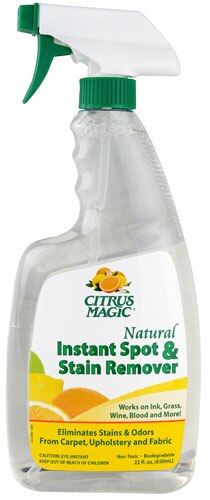Every year the Environmental Working Group (EWG) releases their annual guide to sunscreens,1 and this year's data again shows that you must be very cautious when choosing sunscreen to apply to your skin.
LOOK OUT FOR THESE
1. Oxybenzone This is one of the most troublesome ingredients found in the majority of sunscreens.Oxybenzone is believed to cause hormone disruptions and cell damage that may provoke cancer.
2. Retinyl Palmitate (Vitamin A palmitate) Sunscreen products may actually increase the speed at which malignant cells develop and spread skin cancer because they contain vitamin A and its derivatives, retinol, and retinyl palmitate.
3. Fragrance Beware of products that contain synthetic fragrance, as this term describes any number of harmful chemicals that do not have to be listed individually on the label.
WHAT TO CHOOSE
- Avoid Spray Sunscreens
- Protects Against Both UVA and UVB Rays: SPF only protects against UVB rays, which are the rays within the ultraviolet spectrum that allow your body to produce vitamin D in your skin. But the most dangerous rays are the UVA rays. Make sure your sunscreen protects against both.
- Avoid Sunscreen Towelettes or Powders: Dubious protection
- Avoid Spray Sunscreens: Contain toxic particles that can be inhaled
Does Your Sunscreen Offer UVA Protection?
Even a sunscreen that claims to be "broad spectrum" may not provide adequate UVA protection. As EWG reported:5
"After a 34-year process of reviewing sunscreen safety and efficacy, the U.S. Food and Drug Administration has implemented enforceable rules on sunscreen marketing and UVA protection. The FDA allows American sunscreen makers to claim their products are 'broad spectrum,' even though many offer much poorer UVA protection than sunscreens sold in other countries.
Based on the products in our 2014 database, EWG estimates that about half of all beach and sport sunscreens could not be sold in Europe because they provide inadequate UVA protection."
So, look for a sunscreen that contains the minerals zinc oxide and titanium dioxide.
Use Sunscreen When Absolutely Necessary
If you work in the outdoors, are planning a trip outdoors, or if you need to protect sensitive areas of your face (like around your eyes), safe sunscreen is certainly recommended. But if you apply sunscreen every time you're out in the sun, you'll block your body's ability to produce vitamin D.
Optimizing your vitamin D levels may reduce your risk of as many as 16 different types of cancer, including pancreatic, lung, ovarian, breast, prostate, and skin cancers.
Studies show melanoma mortality actually decreases after UV exposure. Moderate exposure to sunlight, particularly UVB, is protective against melanoma (the deadliest form of skin cancer) due to the vitamin D your body produces.
>> That being said, you NEVER want to BURN!
5 Top Sunshine Tips
Spend some time outdoors in the sun regularly, but do so with some commonsense precautions:
- Expose your skin to sunlight for short periods daily
- If you're in the sun for longer periods, cover up with clothing, a hat or shade
- Shield your face from the sun daily using a safe sunscreen or a hat.
- Consider the use of an "internal sunscreen" like astaxanthin to offer additional protection.
- Consume a healthy diet full of natural antioxidants. Fresh, raw, unprocessed foods deliver the nutrients that your body needs to maintain a healthy balance of omega-6 and omega-3 oils in your skin, which is your first line of defense against sunburn.
Thanks to Dr. Mercola for a comprehensive look at Sun, Sunscreens and Skin diseases.
 Earth Friendly Products Parsley Plus All Surface Cleaner can be used on counter-tops, appliances, microwave ovens, floors, ceramic tile and any other surface not harmed by water. Because natural ingredients are used, color and body may vary.
Earth Friendly Products Parsley Plus All Surface Cleaner can be used on counter-tops, appliances, microwave ovens, floors, ceramic tile and any other surface not harmed by water. Because natural ingredients are used, color and body may vary.

 Earth Friendly Products Dishmate's™ cleaning action gives pots, pans and other cooking utensils a bright luster. Contains no phosphates, dyes or perfumes. Because natural ingredients are used, color and body may vary.
Earth Friendly Products Dishmate's™ cleaning action gives pots, pans and other cooking utensils a bright luster. Contains no phosphates, dyes or perfumes. Because natural ingredients are used, color and body may vary.